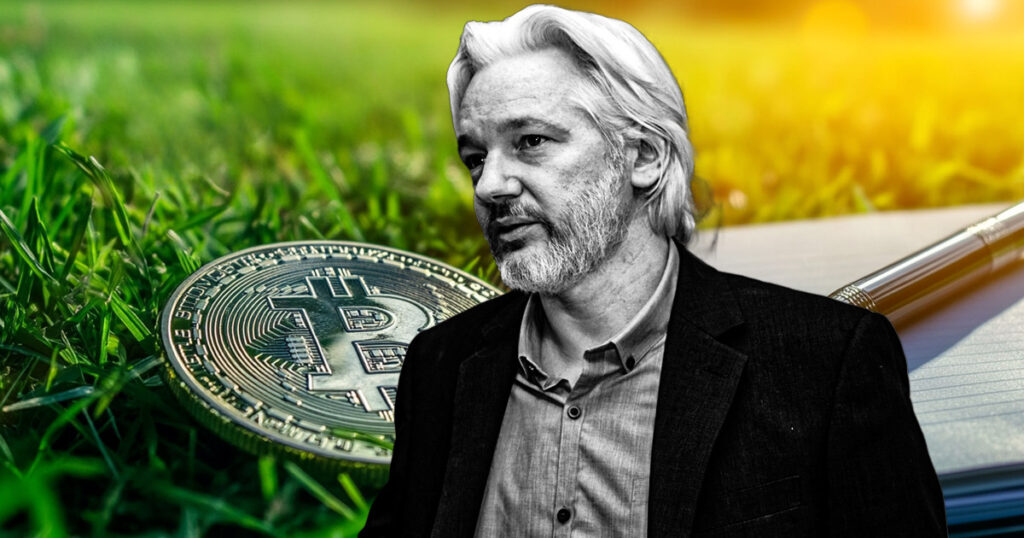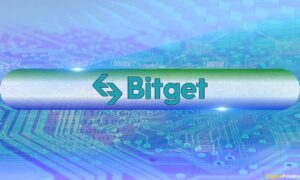Julian Assange thinks blockchain has a higher purpose than Bitcoin


The following is a guest post by Kadan Stadelmann, CTO of Komodo Blockchain.
Although Julian Assange was released from prison in June, his first appearance did not happen until the beginning of the month. He gave the Council evidence of the psychological effects of his incarceration to the legal affairs and human rights committee of the Parliamentary Assembly of the Council of Europe in Strasbourg, France, which includes lawmakers from 46 European countries.
“I want to be totally clear. I am not free today because the system worked,” Assange began his speech to the Council of Europe early this month. “I am free today because after years of incarceration I pleaded guilty to journalism. I pleaded guilty to seeking information from a source.”
“I pled guilty to seeking information from a source,” said Assange. “I pled guilty to obtaining information from a source. And I pled guilty to informing the public what that information was.”
From 2012-2017, Assange lived at the Eucadorian Embassy in London, where he was granted asylum. From 2019-2024 he was held in a maximum security British prison. “It strips away one’s sense of self, leaving only the raw essence of existence,” he shakily said. He apologized for his “faltering words” and “unpolished presentation.”
Assange admitted:
“I’m not yet fully equipped to speak about what I have endured — the relentless struggle to stay alive, both physically and mentally.”
The Council of Europe’s Parliamentary Assembly released a report about Assange’s incarceration, calling him a “political prisoner.” They expressed concern over his treatment, saying the charges brought against him by the U.S. were “disproportiante” and “severe.”
Assange’s Ties To Bitcoin Are Clear
WikiLeaks began accepting Bitcoin after global financial institutions placed WikiLeaks in what the founder called a “Financial Blockade.” It began with PayPal, which originally stated it had received a letter from the State Department before correcting the story and saying it had made its decision after seeing the purposely misleading letter the State Department sent to PayPal.
And then, institution after institution followed by also blocking WikiLeaks from their platforms. Visa, MasterCard, Bank of America blocked donations. The institutions cited their “terms of service” for the decision to block donations.
Assange As Public Enemy Number One
WikiLeaks had sinned against the Powers That Be by releasing more than 250,000 U.S. State Department cables that it received from former Army intelligence analyst Bradley Manning, who today goes by Chelsea. WikiLeaks had also shed light on the CIA infiltration of French political parties, spying on French and German leaders and software injections into smart TVs, cars, and iPhones.
Some in the international community spoke out against the blockade. The UN High Commissioner condemned the action. So did the UN Special Rapporteur on the Promotion and Protection of the Right to Freedom of Opinion and Expression, as well as the Inter-American Commission on Human Rights Special Rapporteur for Freedom of Expression.
Although the U.S. State Department called WikiLeaks’ action illegal, though publishing classified documents is not illegal in the United States. No charges were filed. Eventually, WikiLeaks enjoyed certain smaller victories. The Reykjavík district court, in Iceland, ruled laws by imposing a block against WikiLeaks credit card donations, and that the block should be removed within two weeks.
“This is a significant victory against Washington’s attempt to silence WikiLeaks,” WikiLeaks founder Assange said in a statement about the win in Iceland. “We will not be silenced. Economic censorship is censorship. It is wrong. When it’s done outside of the rule of law it’s doubly wrong. One by one those involved in the attempted censorship of WikiLeaks will find themselves on the wrong side of history.”
Assange views Bitcoin as an important innovation, but other blockchain use cases as just—if not more—important.
Assange is a man who proved too dangerous to the military industrial complex to freely walk the streets because people trusted him with their secrets. It’s a miracle he is alive. Assange is also a man who played a large role in the emergence of Bitcoin.
Assange’s View On Bitcoin, Blockchain
Assange was released from prison in June into a new world order–a world of lockdowns, inflation, and war on the European continent. Assange lamented in his press conference how much ground had been lost in the fight for freedom since his incarceration. It’s not been only bad news, though. There is an increased awareness among the public. And, at the same time, Bitcoin’s integration into society has only increased over time.
Nation-states such as Bhutan and El Salvador hold Bitcoin. The United States might not be so far behind. There is talk of hyperbitcoinization and the Bitcoin Standard. But, this might not be what Assange finds most interesting about blockchain. In an AMA, he revealed he sees great potential for blockchain and journalism. That, in fact, blockchain could save us from the memory hole.
Assange said in a Reddit AMA:
“Bitcoin’s real innovation is a globally verifiable proof publishing at a certain time. The whole system is built on that concept and many other systems can also be built on it. The blockchain nails down history, breaking Orwell’s dictum of ‘He who controls the present controls the past and he who controls the past controls the future.’”
Assange credits Bitcoin with “seeing us through the extralegal US banking blockade.”
Mentioned in this article
#Julian #Assange #thinks #blockchain #higher #purpose #Bitcoin
News plays a pivotal role in our lives by keeping us informed and connected to the world. It serves as a critical source of information, offering updates on current events, politics, economics, science, and more. Through news, we gain awareness of global issues and local developments, helping us make informed decisions in our personal and professional lives. News also fosters discussion and debate, encouraging critical thinking and perspective-taking. Moreover, it promotes transparency and accountability among governments, businesses, and other institutions. In a rapidly changing world, staying updated with the news enables us to adapt to new challenges and opportunities, shaping our understanding of the complexities of society. Ultimately, news is not just about information; it empowers us to participate actively in the world around us, contributing to a more informed, engaged, and responsible global citizenry.
Health is fundamental to our well-being and quality of life, making it an essential aspect of daily existence. It encompasses physical, mental, and emotional aspects, influencing our ability to function effectively and enjoy life fully. Prioritizing health allows individuals to maintain optimal physical fitness, reducing the risk of diseases and promoting longevity. Mental health, equally crucial, affects our cognitive abilities, emotional stability, and overall happiness. Investing in preventive healthcare through exercise, balanced nutrition, and regular medical check-ups helps in early detection of potential health issues, ensuring timely intervention and treatment. Beyond individual benefits, a population’s health impacts societal productivity and economic stability. Governments and organizations worldwide emphasize public health initiatives to address pandemics, health disparities, and promote overall well-being. Ultimately, health serves as the foundation upon which we build our lives, influencing our ability to pursue goals, nurture relationships, and contribute meaningfully to society.
Money plays a crucial role in our lives as a means of financial security and freedom. It enables us to meet basic needs such as food, shelter, and healthcare, while also providing opportunities for education, travel, and personal growth. Beyond material comforts, money facilitates social connections and experiences that enrich our lives. It empowers individuals to invest in their futures, whether through savings, investments, or entrepreneurial ventures, thereby fostering economic stability and growth. However, the pursuit of wealth should also be balanced with ethical considerations, as money can influence relationships and societal dynamics. Responsible management of finances is key to achieving long-term goals and mitigating financial stress. Ultimately, while money is a tool for achieving aspirations and fulfilling desires, its true value lies in how it is utilized to improve both personal well-being and the broader community.
Earning Easy Money in 2024: Opportunities and Considerations 💸
In 2024, the landscape of earning easy money presents diverse opportunities, albeit with considerations. The digital age offers platforms for freelancing, online trading, and e-commerce, allowing individuals to leverage skills and creativity for financial gain. Cryptocurrency investments continue to allure with potential for quick profits, yet they entail high volatility and risk. Moreover, the rise of the gig economy enables flexible work arrangements through apps and websites, offering quick payouts but often without job security or benefits. Passive income streams such as rental properties and investments in stocks or bonds remain viable, but demand initial capital and ongoing management. Amid these options, caution is essential to avoid scams and unsustainable ventures promising overnight success. Ultimately, while the allure of easy money persists, informed decisions, diligence, and a long-term perspective are crucial for sustainable financial growth and security in the dynamic year ahead.






